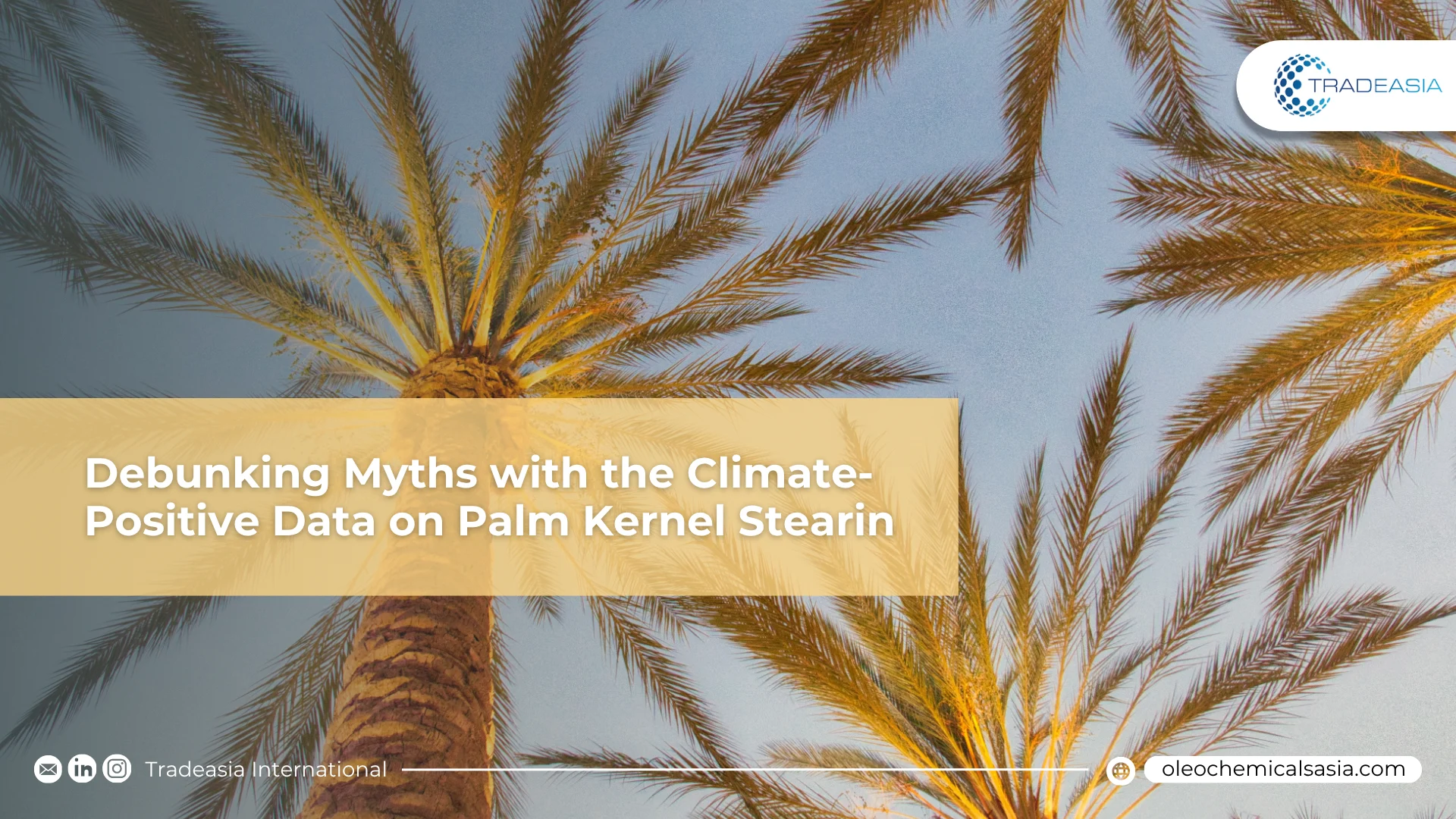A Greener Feedstock: Debunking Myths with the Climate-Positive Data on Palm Oil

Table of Content
-
The Unmatched Efficiency of the Oil Palm
-
From Carbon Source to Climate Solution
For years, the narrative around palm oil and the environment has been clouded by misinformation. Today, a growing body of scientific data and on-the-ground innovation is telling a new, more accurate story—one of efficiency, decarbonization, and a commitment to climate action. Understanding this reality is crucial for any business sourcing RBD Palm Kernel Stearin. At Tradeasia International, we believe in providing our partners with access to a supply chain that is not only reliable but also verifiably on the front lines of climate-positive agriculture.
The Unmatched Efficiency of the Oil Palm
The conversation about palm's environmental impact must begin with the data on its incredible efficiency. The oil palm is, by a wide margin, the world's most productive oilseed crop. It yields an average of 3.8 metric tons of oil per hectare annually. To put that in perspective, this is 8 times more productive than soybean oil and 4.5 times more than rapeseed (canola) oil. This superior efficiency is a critical environmental benefit, as it means the world’s growing demand for vegetable oils can be met using significantly less land compared to any alternative, thereby minimizing pressure on global forests and habitats.
True sustainability begins with efficiency—achieving more with less impact is the foundation of a responsible business.
From Carbon Source to Climate Solution
The industry's climate efforts extend far beyond the plantation. At the palm oil mills, a quiet revolution in green energy is taking place. More than 750 mills have now built facilities to capture methane gas—a greenhouse gas 25 times more potent than CO2—from their wastewater ponds (POME). This captured biogas is then used to generate over 2.2 million megawatt-hours (MWh) of renewable electricity per year. The impact is profound. A rigorous lifecycle analysis confirms that RBD Palm Kernel Stearin originating from an RSPO-certified mill with methane capture has a 45% smaller carbon footprint than that from a conventional mill, transforming a former waste product into a key part of the climate solution.
Sources:
-
The Circular Economy in Oleochemical Production - Oleochemicals Asia
-
Global Agricultural Yield Data (FAOSTAT) - Food and Agriculture Organization (FAO)
-
Journal of Cleaner Production - Elsevier

Leave a Comment